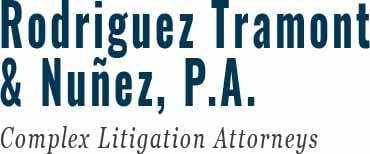Mutual Fund Switching
Switching sales practice violations in mutual fund investments is a common occurrence that goes undetected by most investors. Mutual funds are typically long-term investments. Switching among funds with similar investment objectives is usually a violation if it has no legitimate investment purpose and may needlessly impose another commission charge and increased tax liability for an investor. The continuous purchase and sale of mutual fund shares from different mutual fund families can result in the “churning” or excessive trading of account assets because of the increased risks and costs associated with the investment strategy.
An investment in mutual fund shares across different mutual fund families in amounts under sale breakpoints is an indication of a conflict of interest, unless the investments in a mutual fund portfolio are a part of a bona fide asset allocation program. Mutual Funds are meant to be owned over a substantial period of time. They are not meant to be traded like individual stocks. This is because investors incur substantial charges when they buy and sell Mutual Funds that do not exist for common stocks. The use of mutual funds provides the benefit of diversification which normally does not require the sale of the mutual fund, unless there is a fundamental change in the allocation between asset classes. The sale of a mutual fund is in non-diversified sector or geographical region may be warranted because of increased risks associated with a narrow market-focus of a particular mutual fund manager.
Mutual fund switch transactions represent a FINRA sales practice violation which may result in a viable claim for damages. You are probably asking yourself whether you have a legitimate claim for damages. You are not sure whether stockbroker misconduct was the direct cause of your losses. To consider whether you are the victim of a mutual fund “switch” transaction, consider the following FAQs.
Frequently Asked Questions:
Q: How do I determine whether I have a viable Securities Arbitration Claim?
Q: My financial advisor recommended that I sell my mutual fund portfolio and invest roughly $500,000 into four different mutual fund families, is this ethical?
First, the transaction represents a sales breakpoint violation. Second, most mutual fund families offer 30-50 different investment options with multiple managers in each asset categories with both growth and value investment styles. The securities industry would consider this transaction as a mutual fund switch transaction unless the allocation of the funds across the different fund families was a part of a bona fide asset allocation program.
Q: My financial advisor sold my Eaton Vance High Yield Bond Fund and recommended an investment in Oppenheimer Floating Rate Fund, is this considered a mutual fund switch transaction?
Both mutual fund families have floating rate and high yield bond mutual funds, which would indicate that the motivation for the recommendation was the generation of commissions. An analysis of the relative performance of the respective money managers should shed light on whether it was in your best interest to make the change, net of the additional costs incurred.
Q: How do I determine whether I have a viable Securities Arbitration Claim?
Take the Following Steps to Begin the Recovery of Your Investment Losses:
- Contact Our Legal Team to complete a Case Facts Summary
- Schedule a time For an Interview with an Industry Expert
- Gather Critical Case Documents
- Complete Risk Tolerance Assessment
- Assess Account Damages and Financial Advisor Misconduct
- File Statement of Claim for Securities Arbitration

